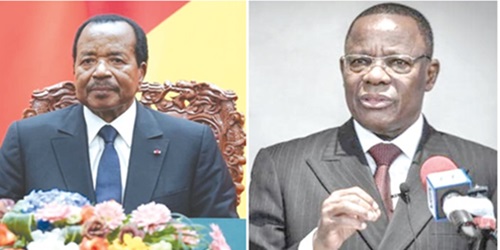President Paul Biya announced his candidacy for an eighth term in the upcoming elections in Cameroun scheduled for October 12.
The reaction to the announcement as expected has been warmly received by his supporters and strongly condemned by the opposition. Democracy activists inside the continent and globally surely do have some concerns as well.
I accept that the incumbent’s decision to run for an eighth term in office is constitutional.
Cameroun, not without controversy, abolished presidential term limits in 2008 after amending their 1996 constitution.
Hitherto, presidents were limited to two seven-year terms.
My concerns are threefold – a) his longevity in office since the country’s transition to multiparty democracy in 1992(not counting his previous years 1982-1992); b) rumours of failing health; and c) regular reports of autocratic practices in a supposedly democratic polity.
The incumbent’s desire to hold on to power is at odds with the democratic aspirations expressed by Camerounians in the Afrobarometer survey.
Cameroun has participated in the survey six times -2013, 2015, 2018, 2021, 2023 and 2024.
What do Cameroonians want?
On the question of term limits, Camerounians strongly support two term limits for presidents.
The level of support has generally remained the same between 2013 (73 per cent) and 2024 (76 per cent).
In the most recent survey (2024), however, two demographic groups showed differences.
Support for term limits is higher among urban dwellers (80 per cent) compared to rural dwellers (72 per cent).
Also, support is stronger among those with secondary education or higher (84 per cent) than those with less than secondary education (70 per cent).
On the question of political party turnover, in 2023, Cameroonians were split 53 per cent-44 per cent in support of the statement “in a democracy, it is better if power sometimes changes hands in elections from one political party to another.”
In 2024, the split barely changed (56 per cent-43 per cent) still in support of turnover.
When it comes to non-democratic alternatives, Camerounians make their disapproval very clear.
They disapprove of one-man rule (75 per cent) and disapprove of one-party rule (80 per cent) as of the 2024 survey.
In summary, Camerounians want term limits and political party turnout whiles disapproving of non-democratic alternatives.
All these aspirations cannot be reconciled with the incumbent’s desire for another seven-year term in office.
There are four notable shifts of concern. First, Camerounian support for democracy has declined significantly, going from 64 per cent saying “democracy is preferable to any other form of government” in 2013, to 50 per cent saying same in 2024.
Second, support for using elections as the method for choosing elections has also dropped significantly from 81 per cent (2013) to 65 per cent (2024).
Third, satisfaction with democracy remains unchanged as it remains very low when 2013 (30 per cent) is compared to 2024 (26 per cent).
Lastly, Camerounians who say their country is not a democracy have grown from 12 per cent (2013) to 22 per cent (2024).
Further complicating these significant declines is how Camerounians evaluate the basic freedoms that democracies are designed to guarantee.
The 2024 survey revealed the following – a) Seven per cent described the news media as completely free; b) 22 per cent said they are completely free to say what they think; and c) 32 per cent said they are completely free to join any political organisation.
Judging the state of Cameroun’s democracy from the sentiments expressed by citizens, it comes as no surprise that the Economic Intelligence Unit’s Democracy Index (2024) classified the country’s regime type as “authoritarian.”
Implications for the future
Will an opposition victory halt further decline and bring about democratic renewal in the country?
More importantly, can the country’s opposition win the upcoming election?
It has taken 33 years since the 1992 transition to build and cement the political entrenchment of the incumbent.
It will take a formidable political opposition, and an electoral environment described more positively by citizens to break this entrenched stronghold.
Based on the sentiments I have read and expressed in public spaces, an electoral victory is more likely for the incumbent president than the opposition even though public approval remains mixed.
While 44 per cent approve of his performance as president, only 18 per cent say they trust him “a lot.”
Moreover, Camerounians are going into the election with serious questions about the integrity of the electoral system – a) only nine per cent in the most recent survey in 2024 say they trust the national election commission “a lot”; b) only 45 per cent say they are free to choose who to vote for, down from 65 per cent in 2013; and c) only 16 per cent rated the most recent election as “completely free and fair.”
At the end of the day, the burning question is this: What would an Eighth term of Paul Biya have on Camerounians’ support for democracy, their satisfaction with it, and their preference for using elections to choose leaders?
Or other indicators used to judge the health of a country’s democracy?
Time will tell but at this time it is difficult to envisage any bright prospects.

